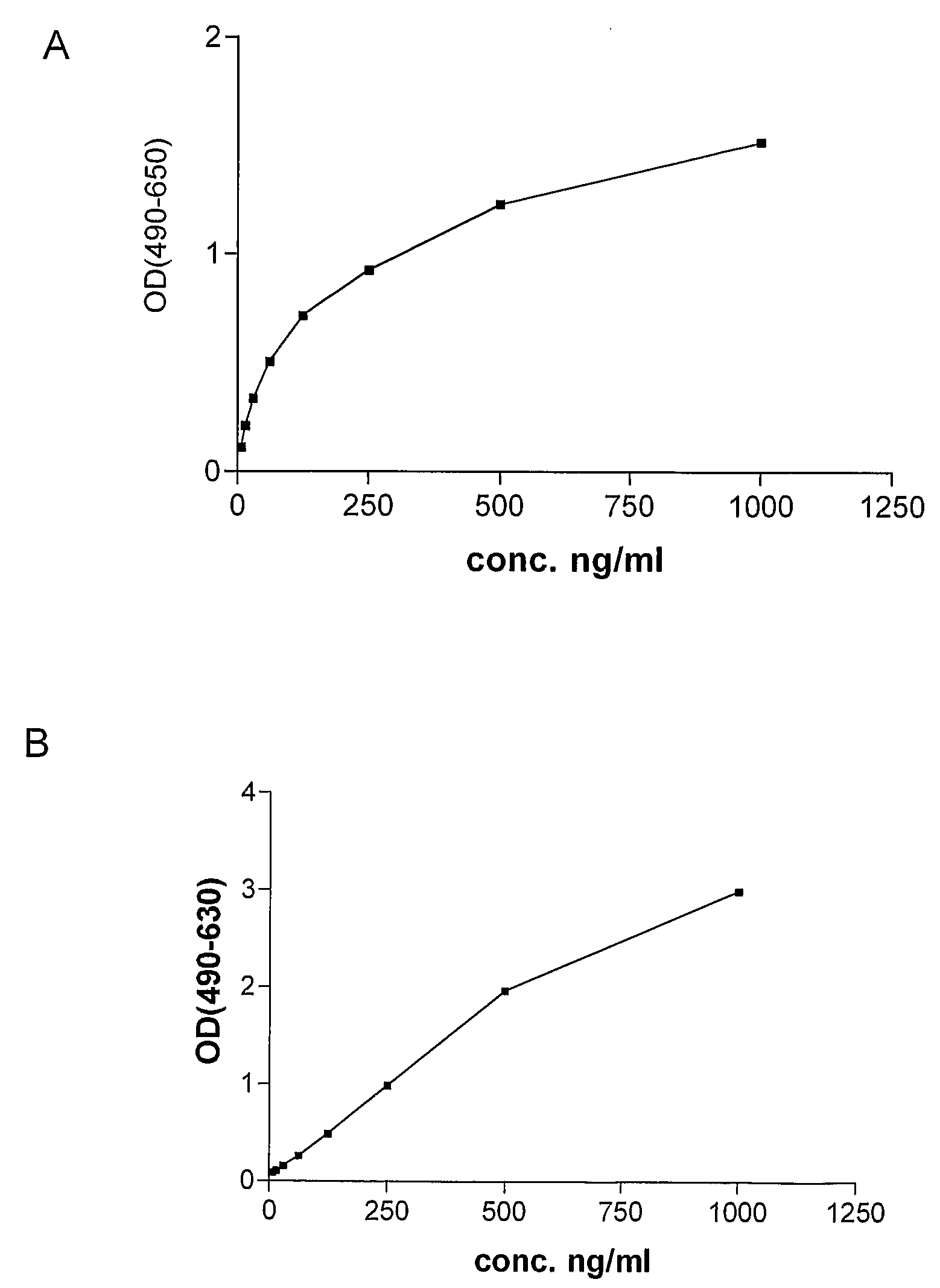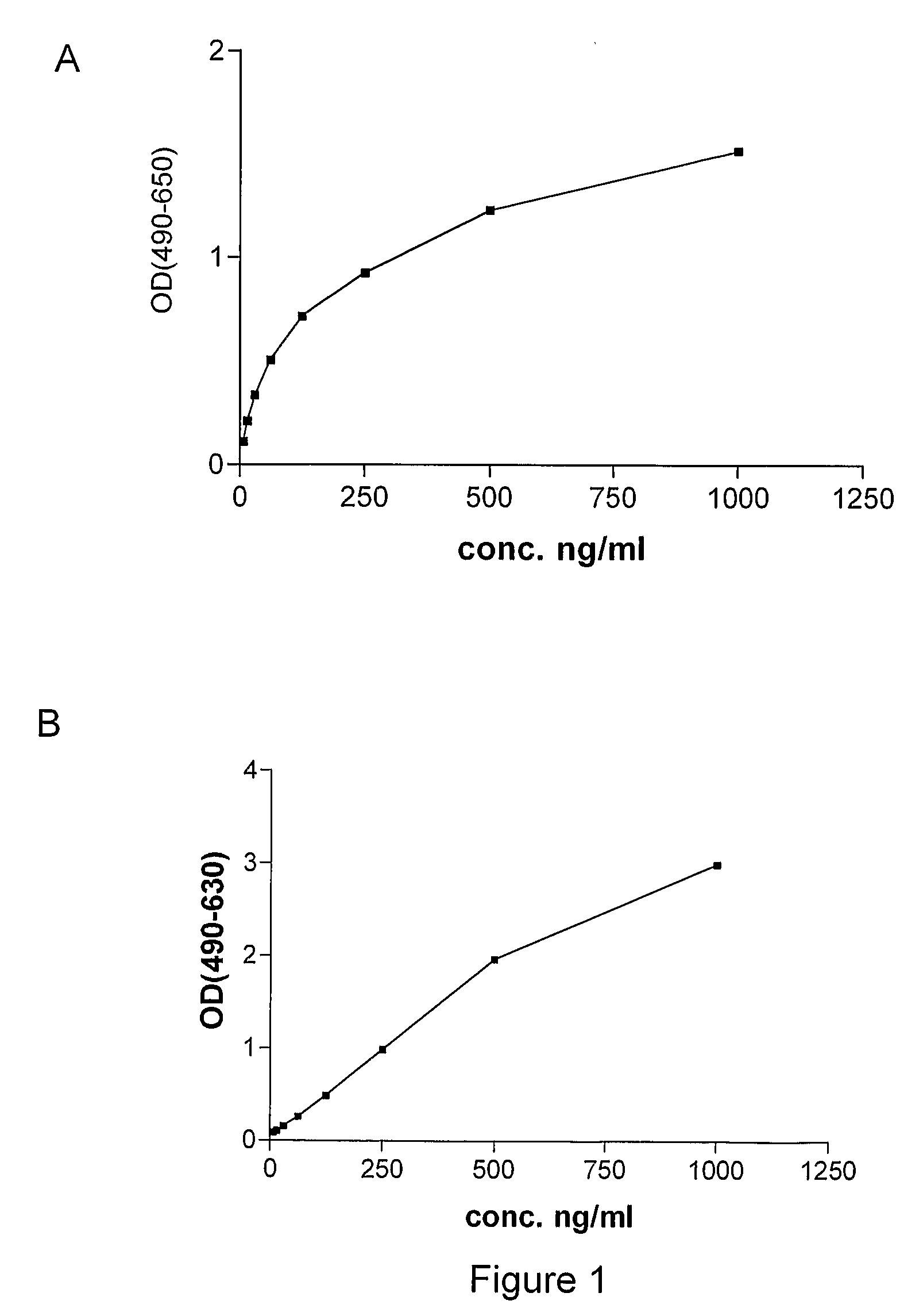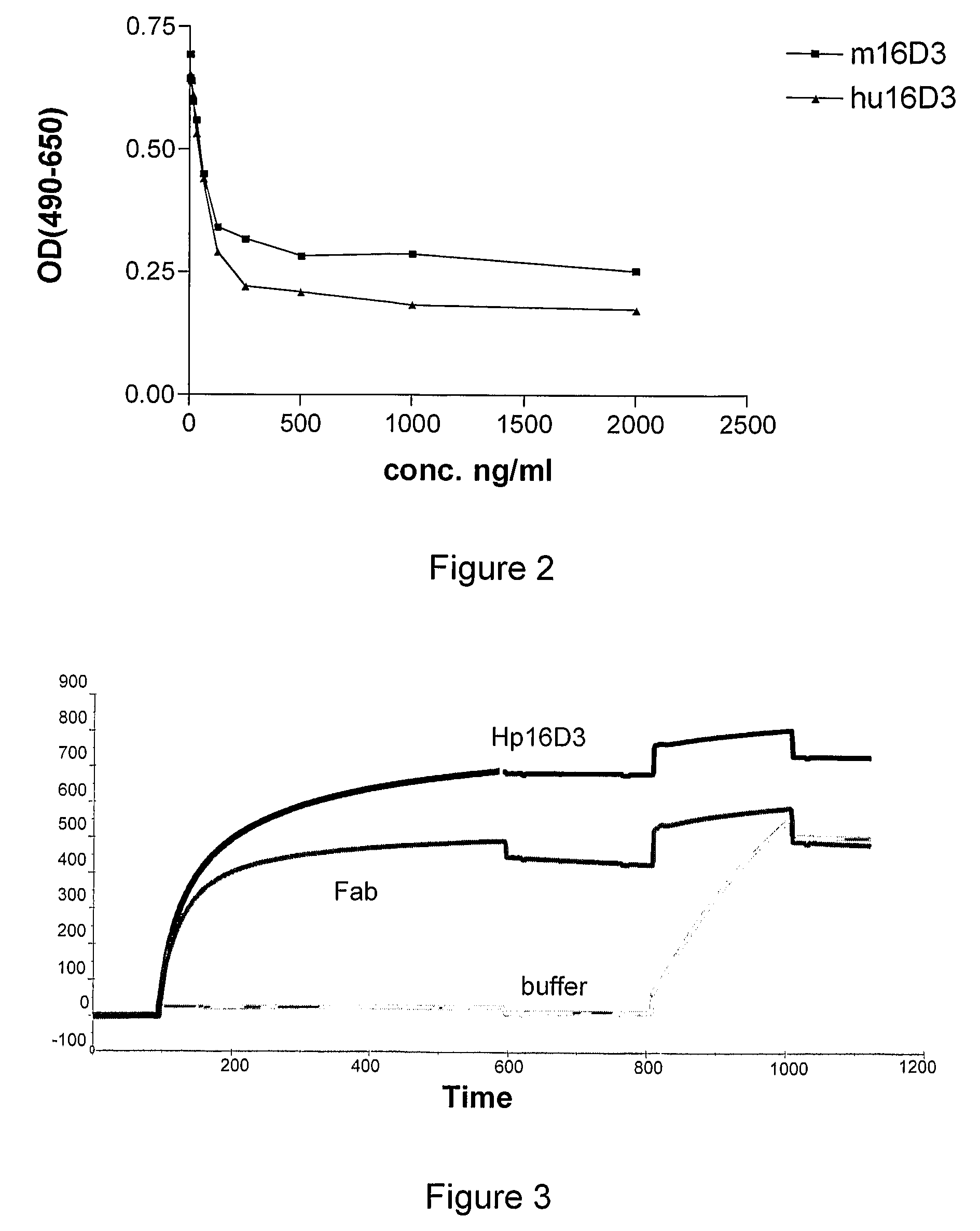Novel Anti-Plgf A Antibody
a technology of human anti-plgf and antibody, which is applied in the direction of peptides, drug compositions, and fused cells, can solve the problems of difficult to generate large amounts of human anti-human antibodies by conventional hybridoma technology, severely limit human therapy use, and large unknown molecular players, etc., to reduce tumor growth and tumor size, and inhibit p1gf
- Summary
- Abstract
- Description
- Claims
- Application Information
AI Technical Summary
Benefits of technology
Problems solved by technology
Method used
Image
Examples
example 1
Production and Characterization of Murine Anti-Human P1GF Antibodies (16D3)
1. Immunization of Mice and Fusion
[0090]Monoclonal antibodies against human P1GF were produced essentially as described by Galfré and Milstein (Galfré F, Milstein C. Preparation of monoclonal antibodies: strategies and procedures. Method Enzymol 1981; 73: 3-46). Briefly, P1GF knock-out mice (Luttun et al., 2002, Biochem Biophys Res Comm 295(2):428-34, Carmeliet et al. (2001), Nat Med 7:575-593 or WO01 / 85796) were immunized by subcutaneous injection of 50 μg recombinant human P1GF-2 (produced in Pichia) in Complete Freund's adjuvant, followed two weeks later by subcutaneous injection with 50 μg recombinant human P1GF in incomplete Freund's adjuvant. Blood samples (about 100 μl) were collected from the tails of the mice after 10 days. The sera were tested for anti-huP1GF antibodies by ELISA using microtiter plates coated with human P1GF as capture, application of diluted sera (from 1 / 500 to 1 / 8000), and horsera...
example 2
Production and Characterization of Humanized Anti-Human P1GF Antibodies (16D3)
1. Construction of Humanized 16D3
Humanization of the Variable Regions
[0102]Mutations: The following mutations were made in order to humanize the variable parts of the mouse antibody 16D3:[0103]Heavy chain:[0104]I2V[0105]P9A[0106]K40A[0107]T111L[0108]Light chain:[0109]S5T[0110]S9D[0111]A15L[0112]K18R[0113]R22N[0114]L89V[0115]The mutations were made by using the QuickChange® Multi Site-Directed Mutagenesis Kit (Stratagene®). 1 to 5 primers containing the mutations could be used in 1 PCR. After transformation colonies were picked and the DNA sequenced to determine the clone with the most point mutations. This clone was taken to repeat this procedure till all the mutations were present in the sequence.
Linking the Variable Regions to a Human IgG Constant Region:
[0116]By performing a PCR the humanized variable parts of the heavy and light chain were obtained to which the appropriate restriction sites were added....
example 3
In Vivo Investigation of the Inhibition of Tumor Growth with Anti-PLGF Antibodies
1. General Description of Materials and Methods
Cell Culture
[0123]The murine pancreatic cell lines Panc02 and the human pancreatic cell line DanG are a kind gift of S. Rosewicz (Charité-Universitätsmedizin Berlin, Germany). The human breast MDA-MB, colon LOVO and melanoma Mel2a cell line were obtained from the American Type Culture Collection (ATCC; Manassas, Va., USA). All cells were cultured as recommended. Murine 16D3 anti-P1GF antibodies were used for all in vivo experiments, to avoid immune reaction to the antibody.
Animal Experiments
[0124]All animal procedures were fully approved by the institutional animal care and use committee. Female NMRI nu / nu mice were housed under semi-sterile conditions and were routinely used at 8-10 weeks of age (approximate weight, 25 g). For the preparation of tumor source, tumor cells were trypsinized to prepare single-cell suspension, washed with PBS. The centrifuged p...
PUM
 Login to View More
Login to View More Abstract
Description
Claims
Application Information
 Login to View More
Login to View More - R&D
- Intellectual Property
- Life Sciences
- Materials
- Tech Scout
- Unparalleled Data Quality
- Higher Quality Content
- 60% Fewer Hallucinations
Browse by: Latest US Patents, China's latest patents, Technical Efficacy Thesaurus, Application Domain, Technology Topic, Popular Technical Reports.
© 2025 PatSnap. All rights reserved.Legal|Privacy policy|Modern Slavery Act Transparency Statement|Sitemap|About US| Contact US: help@patsnap.com



